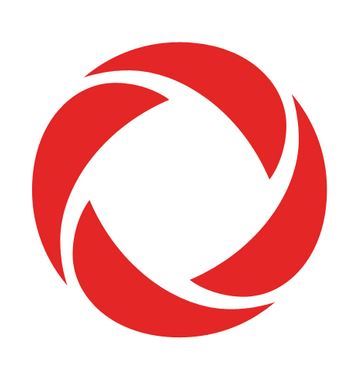
TORONTO – Canadian media circles have long been gripped by a dramatic industry narrative that Netflix and other U.S. tech giants will kill their pay TV business as audiences shift online.
The quieter truth is traditional Canadian distributors are still in business as (cord cutting aside) TV viewers mostly still refuse to part with the cable bundle while also embracing Netflix, Amazon and other digital alternatives.
"Year over year, it's always a bit of doom and gloom. Is TV in decline, is it going away? We believe TV has lots of runway," a bullish Rogers Media president Rick Brace said Thursday as he and other top execs put shoulder to wheel and steer a big ship into uncharted waters.
But as a reinventing Rogers Media fights to hold on to TV viewers and advertisers by offering a better user experience, another streaming wars battlefront has opened up for the Canadian: content. Domestic distributors are having to defend long and vital supply chains at risk as Hollywood and other global players go direct to consumer.
Take Rogers Media's Sportsnet, which along with rival TSN lost the Canadian English Premier League broadcast rights to DAZN, the UK-based online streaming service that already holds rights to soccer leagues in Spain, Italy and elsewhere, plus loads of other content, including NFL Sunday Ticket.
"We knew they (DAZN) would go hard at Canada. And it's part of our new reality, that we can't have everything, but what we can have are the core properties," Bart Yabsley, the new Sportsnet president, told Cartt.ca at his company’s Upfront presentation to members of the media. (Click here to see its fall TV lineup)
The great risk for Canadian media players — whose business hinges on access to new and popular library content — is the Hollywood studios and other international suppliers will stop selling them stuff and hold it back as they get set to drive over-the-top into Canada and globally.
An example is Rogers Media's future with FX, after it became a Disney subsidiary and its content a likely cornerstone of Hulu as the studio takes full control of that streaming service. "We've been a valuable partner to them and jointly own the service in the (Canadian) market. And there are no plans for that to change, and, as far as Disney's participation, Disney will add even more investment into the service," Rogers vice president of programming Hayden Mindell predicted.
At the same time, Mindell says a fast-changing media landscape – where Disney, WarnerMedia, Apple, Comcast and others are going OTT – does makes it difficult to manage or pick new content suppliers as the industry shifts and realigns. "They all have different approaches. While everything is changing, it's hard to know who the winners will be and what their global approach will be. It's a fascinating time," Mindell added.
The result is, amid endemic uncertainty, Rogers Media and other Canadian players have to find new revenue streams and synergies from old and new media assets.
Take Sportsnet. Beyond its Sportsnet NOW streaming service, the TV sports brand has launched a multiplatform original content studio to generate bite-size content for multiple social and digital platforms where sport fans live, whether Twitter, YouTube, Facebook, Instagram or Sportsnet.ca
“The world of cable and satellite and a fully protected Canadian industry – is over.” – Bart Yabsley, Rogers Media
The sports channel is embracing a digital wild west where audiences need to be engaged on their own terms, not those of Rogers Media. "The world of cable and satellite and a fully protected Canadian industry – is over, and has been over for some time," Yabsley observed.
He knows DAZN and its soccer rights is just the start of an OTT wedge for Sportsnet and the Canadian market as the sport rights acquisition strategies of Facebook and Amazon evolve.
Elsewhere, for example, Discovery Communications with its own rights scoops wants to own golf with its PGA and Tiger Woods partnership, as well as pro cycling with Eurosport's expanding pro cycling rights.
Then Formula One, which has a deal with TSN, is slowly rolling out its F1 TV Pro streaming service under new owner John Malone and Liberty Media.
"Our strategy is really to focus on our core rights, and core properties that we know resonate with Canadian fans, and give us an opportunity to connect with them on many levels with fan engagement," Yabsley said of his audience retention and growth strategy.
The long-term NHL contract, the fact it owns the Toronto Blue Jays as well as a portion of the Toronto Maple Leafs, Toronto Raptors and Toronto FC, also provides some level of stability for Sportsnet programming, too.
Rogers Media is also battling encroaching U.S. streaming players by doing more to target marketing and advertising at domestic TV viewers, using improved analytics and audience data.
Al Dark, senior vice president of Rogers Media Sales, pointed to Rogers Enabled Data (RED), which aggregates consumer data and enables advertisers to clearly define a targeted audience, as a tool for the company to battle Facebook and Google for ad dollars.
"I'm pulling data off 19 million wireless devices, 2.5 million households with set-top boxes. It's anonymous and aggregated, but it's easier to reach moms with kids who take their kids to sporting events by leveraging these segments and taking a different slices of these audiences and reporting against them, because every marketer is trying to be more efficient and effective," Dark told Cartt.ca.


